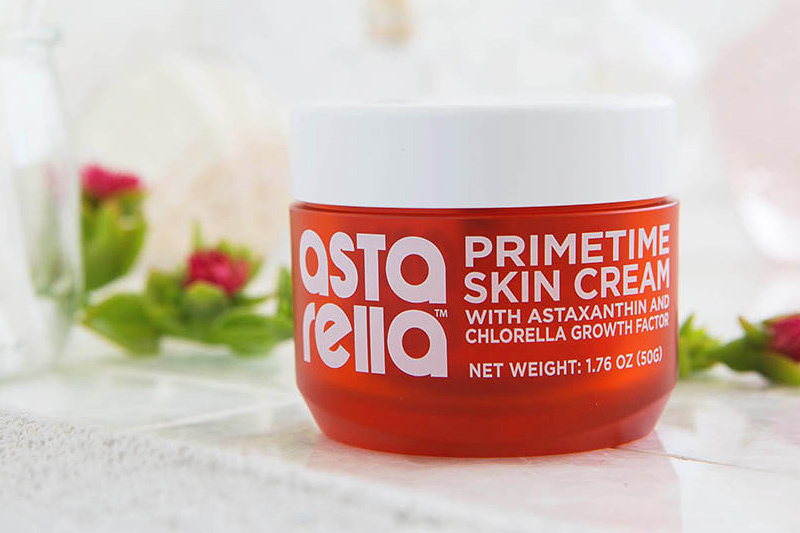By Brandi Black, RHN
Estimated reading time: 4 minutes
Updated September 20, 2019
Move over Vitamin C, you have antioxidant competition in town, and it’s an algae called astaxanthin. Astaxanthin (pronounced asta-zan-thin) is often referred to as “The King of Carotenoids,” and is becoming increasingly popular for its potent antioxidant benefits. Carotenoids are a class of plant pigments that act as powerful antioxidants and give plants their bright colors. One carotenoid you may already be familiar with is beta-carotene, the antioxidant form of vitamin A, which gives pumpkins their bright orange hue. Astaxanthin is found in coral colored pigment in algae and certain marine animals such as salmon, lobster, and shrimp.But astaxanthin has far more antioxidant power than beta-carotene. Studies have shown that the antioxidant activity of astaxanthin is significantly stronger than beta-carotene, vitamin E, lycopene, and lutein.
Astaxanthin, The Superior Antioxidant
Some antioxidant vitamins and minerals lose their antioxidant function shortly after it has been exposed on your skin — similar to how a honeybee dies after it stings you. But astaxanthin remains active for a longer period of time , which gives it much more antioxidant potential. This unique ability makes astaxanthin the superior antioxidant!
Health Benefits of Astaxanthin
Here are a few other health benefits of astaxanthin:
● Supports vision
● Helps to support cardiovascular health
● Increased energy levels
● Supports joint health
● Younger-looking skin
Food Sources of Astaxanthin
There are several food sources that also contain astaxanthin such as:
● Wild Pacific sockeye salmon
● Shrimp
● Krill
● Lobster
● Crab
● Red trout
● Marine microalgae
Astaxanthin is found in most seafood that has a light pinkish color when they’re cooked. Some health experts recommend avoiding over-cooking seafood to preserve the astaxanthin content, as it may deplete when exposed to extremely high temperatures. If you’re looking for a quick and easy way to get astaxanthin in your diet try snacking on dried salmon, or cooking up some lobster or crab for dinner.Astaxanthin can also be purchased as a nutritional supplement in many health food stores. A high-quality astaxanthin supplement will typically use haematococcus pluvialis as the astaxanthin source, which is from marine microalgae.
Astaxanthin Benefits For Your Skin
Astaxanthin may be your new holy grail of your skin care routine. Studies have shown astaxanthin may have photoprotective effects, but since it doesn’t have an SPF, it can’t protect you fully against UV rays. However, it’s still the next best (and natural) way to keep your skin healthy-looking. If you’re wondering where to find a quality natural product that contains astaxanthin, look no further than Astarella Primetime Skin Cream.
My Personal Experience with Astarella

What Is Astaxanthin?